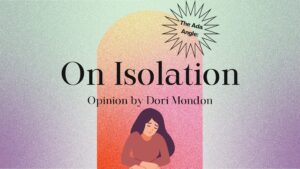I have studied in the U.S. for five and a half years, focusing on politics and reproductive justice. I grew up in Cambodia following a strict traditional norm, “Chbab Srey” which means “Women Code of Conduct” that calls for girls and women to be submissive and deferential to men. Sexual intercourse was and still is a very rare and inappropriate topic of conversation. I was forbidden from dating, kissing and having sex before my wedding day—let alone having multiple sexual partners.
When my friends in the U.S. told me that they practice non-monogamy, I had a hard time understanding them. I viewed it as an excuse to not commit to a partner, a familiar stereotype that I share with many of my monogamous friends. But I realized that if I want to advocate for human rights, I need to recognize that non-monogamy is a radical form of sexual freedom.
“Consensual non-monogamous relationships (CNMR) are partnerships that allow members to have more than one sexual or romantic partner at a time.” Justin J. Lehmiller, Ph.D. Social Psychologist and the author of “Tell Me What You Want,” a book that offers an unprecedented look at sexual fantasy based on the most comprehensive, scientific surveys conducted in the U.S. In his work, Dr. Lehmiller predicts that this non-traditional romantic practice is on the rise and he is not wrong.
A 2017 survey found that more than one in five of 8,700 single adults living in the US engaged in consensual non-monogamy at some point in their lives. The most recent trends in CNMR can be found in the 2019 CBSN Originals documentary “Speaking Frankly: Non-Monogamy”—a real-life interview film that captures couples who publicly share their CNMR experiences and struggles. To satisfy my curiosity about CNMR, I conducted a survey of fifteen Smith students to get their opinion on the topic.
To my question: “What does being non-monogamous mean to you?” A fellow Ada Comstock Scholar, responded “For me personally, non-monogamy doesn’t have to do with sex but more with love. Maybe my partner has different desires or needs than I do, or maybe I have different desires and needs.” She further explained that CNMR allow her to explore her sexuality in different avenues and honor that desire.
Another participant said, “It’s a relief to have a huge vector of guilt and shame for having feelings outside of my relationship with my partner removed.” They also revealed that they practiced CNMR as a form of sexual liberation and it has served their mental, physical, and spiritual health.
In my survey, I also found that not all those who practice consensual non-monogamy have an easy path to opening themselves to their families and to feeling free from societal stigma. A 40-year-old recalled a time when she felt judged by monogamous individuals in Northampton: “The fact that I’m a lesbian doesn’t necessarily mean I’m instantly attracted to every woman I meet, being non-monogamous doesn’t mean I’m trying to come after your partner, either. I stick with people who practice it like I do, communicating honestly and openly.”
One common response to my survey was the feeling of safety and freedom at Smith College. Another participant shared that she felt fortunate to be in an environment where non-monogamy generally seems to be well accepted at Smith. “I feel like the queerness of Smith College has made many people reflect on traditional relationship norms.” Although she feels accepted for her non-monogamous practice at Smith and in Northampton, she fears that she might face more criticism for being herself upon graduating from Smith and moving to other cities.
Stories like those from participants in my survey are important for us to imagine a world where individuals would be free from societal judgments. As a society, we would have to seriously become allies with people who practice CNMR by accepting them without judgment. The implication for social justice is clear: younger generations are creating a radical revolution of sexual freedom far from the traditional norm of nuclear family and for the first time in history, children would need to be educated about CNMR as a form of sexual freedom—a human right.
















